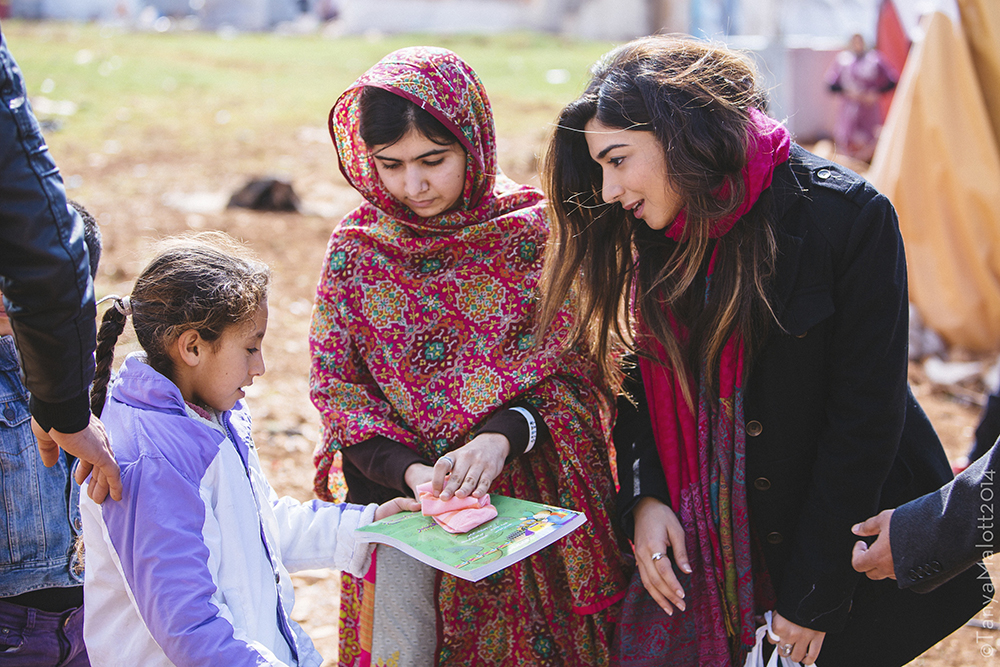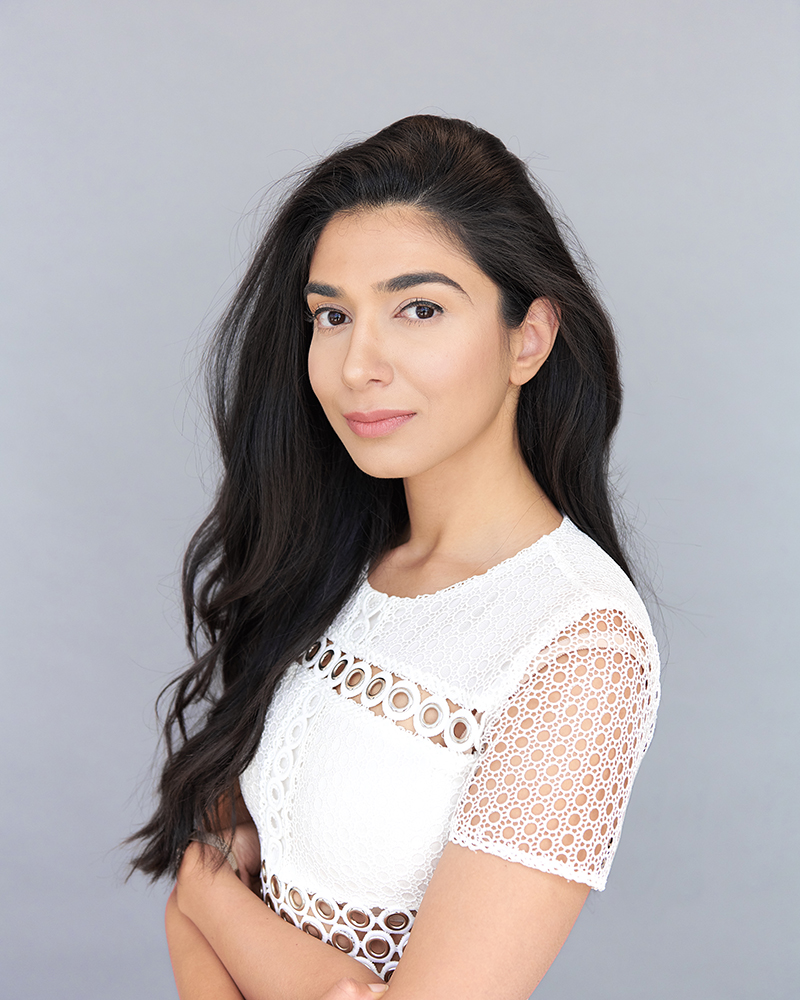Photography by Janick Laurent
Shahid believes that socially-conscious companies are the future – and good for business.
Written by Popi Bowman
The trend of companies that champion “social good” is a rising tide that only seems to be growing. Ninety-one percent of affluent millennials say they’d switch brands to one that supports a good cause, while more than 85 percent overall would buy a product with a social or environmental benefit, according to the 2015 Cone Communications Millennial CSR Study. Corporate social responsibility, however, is often a PR catchphrase rather than an authentic vision – and that’s what Shiza Shahid wants to change. “To be more authentically mission-driven, you need to look at, first and foremost, your culture and your employees,” she explains. “If you’re going to talk about women’s empowerment, and not a single woman is on your board, that’s not going to work.”
When it comes to building a business with a mission, Shahid is fluent in the language, and was invited to Toronto earlier this year as a keynote speaker for the inaugural Capital One Digital for Good conference. After rising to fame as the co-founder and CEO of the Malala Fund, these days Shahid is immersed in public life and her role as CEO of Now Ventures, an investment company she launched to support mission-driven startups. “When the Malala Fund had been established, and the story was out there, and everything was in a good place, the best thing I could do was move forward, find other change-makers to invest in, and try to use business entrepreneurship in tech to accelerate the pace of change,” she says. In partnership with AngelList, the world’s leading marketplace for startup investing, Now Ventures is dedicated to seeking entrepreneurs who are on the verge of changing the world for the better and connecting them with the resources they need to succeed.
Although her vision is lofty, Shahid’s business journey had humble beginnings. In her early teens, she volunteered to help incarcerated women and their children in Pakistan: “I was growing up in a country that’s ranked the second-worst place to be born a woman. And so, I was just very curious about what was going on around me,” she admits. “Out of, initially, curiosity, I began to volunteer anywhere I could to get my foot in the door.” Shahid’s family was mostly traditional, but unlike many parents in Pakistan, they prioritized education. (In 2012, her parents launched a school that currently houses more than 100 orphans.) A scholarship enabled Shahid to attend Stanford University in California, and after graduating with honours in 2011, she moved to Dubai to be a business analyst for McKinsey & Company – a short-lived career, as it turned out.


Shahid met Malala Yousafzai a few years before the Taliban assassination attempt in 2012, an event that dramatically altered both of their lives. She quickly joined Yousafzai’s family at the hospital when Malala’s recovery (which Shahid calls “a miracle”) was uncertain. Thus began a new chapter for the friends: “I was 22 years old,” Shahid recalls. “I dropped out of my first job, which was this high-powered business job, and went to the US with a suitcase.” Working alongside Yousafzai’s father as the foundation’s CEO she had to “figure it all out from scratch.” But success came quickly: Pakistan donated one of the first large gifts ($10 million), Shahid landed on Time’s 30 Under 30 list in 2013, and a year later, Malala won a Nobel Peace Prize (the youngest-ever recipient, at only 17 years old) for her work to support girls’ education.
Despite the fame and accolades, Shahid was compelled to do more. “One thing that’s been consistent is, at any particular moment, saying, ‘What’s the best thing that I can do to be impactful?’” she explains. “And I think sometimes, when people want to have an impact, they focus on the impact more than on the efficiency, the scalability, the sustainability of how they do it. I’ve always juggled those two worlds – I want to do something significant, I want to build something that is as large in scale as it is efficient, and as innovative. But I also want to do work that’s impactful.”
A recent project Shahid is investing in happens to be a company based in Toronto, BioRender, which she explains is “building Adobe for the life sciences” – essentially, helping doctors and scientists represent their ideas visually. “What this allows them to do, and the reason I’m excited about the mission, is it helps scientists become better storytellers, [which] I think makes the world better.” One of the professional tools she relies on, not surprisingly, is storytelling: “How can you tell a story in a way that shifts culture and inspires action? Because that’s when you truly catalyze a movement.”
Shahid believes that, “Businesses, if they want to survive, have to think about how to be more mission-driven, because it’s the only way they’re going to be able to attract talent, and build real customer loyalty.” She says, “I’m trying to catalyze this shift by investing in great companies, and saying, ‘Hey look, this is a great business because it’s mission-driven.’ And they’ve been able to prove that these are not just better for the world, but better for returns.” A recent Deloitte Core Beliefs & Culture survey found that organizations with a strong sense of purpose also inspire significantly greater trust, while reporting much higher levels of employee engagement and optimism for long-term growth. The firm also discovered that almost 40 percent of millennials believe businesses should prioritize “improving society” (according to the 2018 Millennial Survey, for which Deloitte compiled data from more than 10,000 participants worldwide).
Having a positive social impact – on any scale – is how Shahid ultimately measures her accomplishments. “Success is overrated. Rather than success, I think about what makes life meaningful,” she explains. “When you feel like you’re making a difference, there’s nothing else in the world that feels better.” As a keynote speaker, Shahid travels widely to share her views on education, leadership, and women’s rights. During a TEDx Talk on YouTube, she shares her three guiding principles: Knowledge is best acquired through human connection; you have the power to influence anything about which you are truly passionate; and, at critical junctures in your life, let your heart lead you.
Shahid explains that while launching the Malala Fund dramatically elevated her career, at the time, it was a difficult choice that ultimately came back to her heart: “There are moments when we make decisions that shape our destiny, and in those moments, we have to listen to our intuition.”








